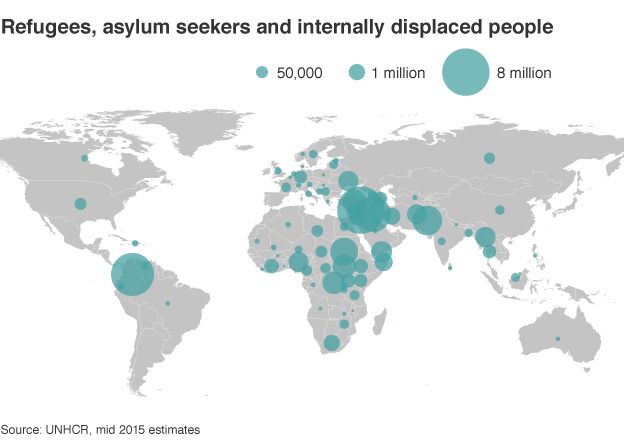Missing EgyptAir Flight Likely Downed by Terror Attack, Minister Says
Airbus A320 carrying 66 passengers, 10 crew lost by radar while flying at 37,000 feet above the Mediterranean; EgyptAir vice president tells CNN wreckage found.
 Previous flights for the same day.
Previous flights for the same day.
Haaretz: An EgyptAir jet carrying 66 passengers and crew from Paris to Cairo disappeared from radar over the Mediterranean south of Greece on Thursday, with Athens saying the plane swerved in mid-air before plunging from cruising height and vanishing.
Egypt’s aviation minister said a terrorist attack was more likely to have taken down the aircraft than a technical failure.
EgyptAir Vice President Ahmed Adel has since said in an interview with CNN that the wreckage of the missing plane has been found.
“There are so many reasons why a plane can fall from the sky and crash. We have no explanations at this stage. We need more investigation,” he said.
Egypt’s envoy to France said Greek authorities had informed his counterpart in Athens that they had found blue and white debris corresponding to EgyptAir’s colors.
Later, Egypt’s Civil Aviation Ministry said that Greek authorities have found “floating material” that is likely to be debris from the missing aircraft.
Greece deployed aircraft and a frigate to search for the missing Airbus and officials said they had found pieces of plastic and two life vests that appeared to have come from an aircraft in the sea 370 kilometers (230 miles) south of Crete.
Egyptian Prime Minister Sherif Ismail said it was too early to rule out any explanation, including an attack like the one blamed for bringing down a Russian airliner over Egypt’s Sinai Peninsula last year.

Egypt said it would lead the investigation and that France would participate. Other countries also offered to help, including Britain and the United States.
In Washington, U.S. President Barack Obama received a briefing on the disappearance from his adviser for homeland security and counter-terrorism, the White House said.
Greek Defense Minister Panos Kammenos said the Airbus had first swerved 90 degrees to the left, then spun through 360 degrees to the right. After plunging from 37,000 feet to 15,000, it vanished from Greek radar screens.
According to Greece’s civil aviation chief, calls from Greek air traffic controllers to flight MS804 went unanswered just before it left Greek airspace, and it disappeared from radar screens soon afterwards.
There was no official indication of a possible cause, whether technical failure or sabotage by hard-line Islamists who have targeted airports, airliners and tourist sites in Europe, Egypt, Tunisia and other Middle Eastern countries over the past few years.
The aircraft was carrying 56 passengers — with one child and two infants among them — and 10 crew, EgyptAir said. They included 30 Egyptian and 15 French nationals, along with citizens of 10 other countries.

Asked if he could rule terrorist involvement, Prime Minister Ismail told reporters: “We cannot exclude anything at this time or confirm anything. All the search operations must be concluded so we can know the cause.”
French President Francois Hollande also said the cause was unknown. “No hypothesis can be ruled out, nor can any be favored over another.”
With its archaeological sites and Red Sea resorts, Egypt is a traditional destination for Western tourists. But the industry has been badly hit by the downing of a Russian Metrojet flight last October, in which all 224 people on board were killed, as well as by an Islamist insurgency and a string of bomb attacks.
No response
Greek air traffic controllers spoke to the pilot as the jet flew over the island of Kea, in what was thought to be the last broadcast from the aircraft, and no problems were reported.
But just ahead of the handover to Egyptian controllers, calls to the plane went unanswered.
“About seven miles before the aircraft entered the Cairo airspace, Greek controllers tried to contact the pilot but he was not responding,” said Kostas Litzerakis, head of Greece’s civil aviation department. Shortly after exiting Greek airspace, it disappeared from radars, he said.
Greek authorities were searching the sea south of the island of Karpathos, Greece’s Defense Minister Kammenos told a news conference.
“At 3:39 A.M., the course of the aircraft was south and southeast of Kassos and Karpathos (islands),” he said. “Immediately after, it entered Cairo flight information region and made swerves and a descent I describe: 90 degrees left and then 360 degrees to the right.”
The Airbus plunged from a height of 37,000 feet (11,280 meters) to 15,000 feet before vanishing from radar, he added.
Egyptian Civil Aviation Minister Sherif Fathi said authorities had tried to resume contact but without success.
‘No one knows anything’
At Cairo airport, authorities ushered families of the passengers and crew into a closed-off waiting area.
Two women and a man, who said they were related to a crew member, were seen leaving the VIP hall where families were being kept. Asked for details, the man said: “We don’t know anything, they don’t know anything. No one knows anything.”
Ayman Nassar, from the family of one of the passengers, also walked out of the passenger hall with his daughter and wife in a distressed state. “They told us the plane had disappeared, and that they’re still searching for it and not to believe any rumors,” he said.
The mother of a flight attendant rushed out of the hall in tears. She said the last time her daughter called her was Wednesday night. “They haven’t told us anything,” she said.
In Paris, a police source said investigators were now interviewing officers who were on duty at Roissy airport on Wednesday evening to find out whether they heard or saw anything suspicious. “We are in the early stage here,” the source said.
Airbus said the missing A320 was delivered to EgyptAir in November 2003 and had operated about 48,000 flight hours.
The missing flight’s pilot had clocked up 6,275 hours of flying experience, including 2,101 hours on the A320, while the first officer had 2,766 hours, EgyptAir said.
At one point, EgyptAir said the plane had sent an emergency signal at 04:26 A.M., two hours after it disappeared from radar screens. However, Fathi said later that further checks found that no SOS was received.
Egypt and France to cooperate
The weather was clear at the time the plane disappeared, according to Eurocontrol, the European air traffic network.
Under UN aviation rules, if the aircraft is found to have crashed in international or Egyptian waters, Egypt will automatically lead an investigation into the accident, assisted by countries including France, where the jet was assembled, and the United States, where engine maker Pratt & Whitney is based.
Russia and Western governments have said the Metrojet plane that crashed on October 31 was probably brought down by a bomb, and ISIS said it had smuggled an explosive device on board.
That crash called into question Egypt’s campaign to contain Islamist violence. Militants have stepped up attacks on Egyptian soldiers and police since Egypt’s President Abdel-Fattah al-Sissi, then serving as army chief, toppled elected President Mohamed Mursi, an Islamist, in 2013 after mass protests against his rule.
In March, an EgyptAir plane flying from Alexandria to Cairo was hijacked and forced to land in Cyprus by a man with what authorities said was a fake suicide belt. He was arrested after giving himself up.
EgyptAir has a fleet of 57 Airbus and Boeing jets, including 15 of the Airbus A320 family of aircraft, according to airfleets.com.
***** Other details include:
- Plane went through full maintenance less than a week ago.
- Plane departed about 25 minutes late.
- MS804 stopped in Tunisia, Cairo, Brussels, Eritrea prior to Paris.
- Passenger list included: 15French 30Egyptian 1British 1Belgian 2Iraqis 1Kuwaiti 1Saudi 1Sudanese 1Chadians 1Portuguese 1Algerian 1Canadian
Final summary: Debris has been spotted some 210 miles southeast of Crete in the Eastern Mediterranean that is believed to have been from EgyptAir Flight MS804. The passenger jet, an Airbus 320, left the Charles De Gaulle Airport in Paris, France at about 9:30pm local time. On board were 56 passengers, 7 crew and 3 air marshals. At around 2:30am Cario-time, Flight 804 was crossing into Egyptian airspace and being handed off from Greek air controllers. The last radio traffic indicated that there were no problems. At an altitude of some 37,000 feet, the Airbus 320 suddenly dove some 22,000 feet and began to swerve and turn, then, disappeared from radar. Search efforts were launched immediately.



 Previous flights for the same day.
Previous flights for the same day.


